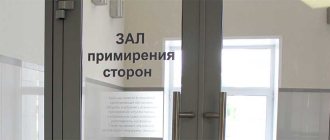Crimes often occur in everyday life, this could be theft, as well as other types of theft. In order to prove theft, the investigator needs to collect a number of irrefutable evidence. In the event that, when a criminal is discovered, the stolen property is preserved in kind, it will serve as material evidence in the case, and after the trial it will be transferred to the victim.
Responsibilities of the parties when accused of theft
The question of a person's responsibility for committing a crime is serious. As a result, you can lose not only your money, but also your reputation, and at the same time face the most negative consequences - incur criminal penalties. By law, a person accused of stealing money or other property does not have to prove innocence.
This is the responsibility, first of all, of the investigator, and then of the prosecutor if the case is brought to court. On the other hand, you should never behave passively. It happens that “they don’t understand”, and you have to bear the punishment for someone else.
If there is no guilt, you should not agree with the accusations. Signs of psychological pressure from law enforcement agencies indicate problems with evidence, and the police want to “break” a person by extracting the necessary confessions from him. If you admit to committing theft, the process will proceed in a simplified form. It is unlikely that the judge will then understand the situation whether there were violations in the case or not. Once the accused confessed, it means he is guilty.
You must demand that your rights be clearly explained. Police officers are obliged to do this, in particular, to explain to citizens their right to defend themselves and not to incriminate themselves. These rules are set out in the Constitution, the Police Law, and the Criminal Procedure Code.
A person can be kept in custody by decision of the investigator for only 48 hours, then a court decision is required to extend this period.
You need to get a call from a relative or close friend so that he can invite you to a lawyer who will explain how to prove your innocence of theft and, if necessary, help you win in court. Police officers are required by law to give you the opportunity to call. Any actions aimed at limiting the right to defense, which are subsequently proven, often lead to the collapse of the case.
If physical violence was used against you, it is necessary to collect evidence confirming beating, torture, and torture. In this case, it is necessary to write statements to the prosecutor's office and the Investigative Committee. While you are free, you can remove the beatings in the hospital.
Rights and obligations of the prosecution and the suspect (accused)
| Accused | Responsibilities of the prosecution |
| Hiring a lawyer is a way to strengthen your position | The obligation of the prosecution to provide an opportunity to defend itself, in particular, to provide access to the services of a defense lawyer |
| Right to seek and present evidence | The obligation to request documents, call witnesses, order examinations in case of influence on the outcome of the case |
| Proactive action – an opportunity to prove your innocence | A court that has received a case in which not everything is clear must either fill in the gaps in the investigation, or send it for a new investigation, or terminate the case |
| No obligation to prove your innocence of theft if you are accused of theft | The obligation to look for evidence, not only of guilt, but also of innocence in theft |
Punishment
Different parts of Article 158 of the Criminal Code establish specific types, terms and amount of punishment when a citizen commits proven theft.
So, general legal penalties mean that you will have to:
- Pay money (fine) - no more than 80,000 rubles;
- Go to compulsory work - no more than 360 hours;
- Send to correctional labor for a period of no more than a year;
- Accept restrictions on your freedom for a period of no more than two years;
- Go through arrest - for a period of 4 months;
- Lose your freedom for a period of no more than two years.
Theft from pockets of clothing, non-residential premises or group theft (not organized crime) may be punished as follows:
- Two hundred thousand rubles of fines - no more, but less;
- 480 or less mandatory work;
- The assignment of correctional labor is for a period of no more than two years;
- Assignment of forced labor for a period of no more than five years;
- Imprisonment – up to 5 years in prison.
Major thefts, thefts from apartments and houses, as well as theft of the country's natural resources are punished as follows:
- Five hundred thousand rubles in fines – no more, but less;
- Imprisonment - no more than 6 years (in this case, a fine of 80,000 rubles may also be charged for subsequent violations);
- Forced labor – no more than 5 years.
Particularly large-scale thefts, as well as the activities of gangster groups committing theft, imply the following penalties:
- No more than ten years imprisonment;
- Fine up to a million rubles.
Statement to the investigator when accused of theft
All statements must be submitted to the investigator after a criminal case has been initiated. The initiation of a case is formalized by a separate resolution of the investigator. After this, the suspect, later the accused, receives a number of rights and obligations.
All further requests regarding the conduct of certain investigative actions must be sent to the investigator, and depending on the results of consideration of the applications, a complaint must be made to the prosecutor's office or court if the response to the applications is illegal and unfounded.
All applications or requests must be submitted in writing. This is the only way to prove violations during the investigation process. Until the case is formally started, complaints are written to the head of the police department, the prosecutor or the court, as you choose.
The law does not indicate actions about which it is prohibited to complain. Another thing is that the very fact of a complaint does not always stop the process of a case or oblige the investigator to discontinue the case.
I demand satisfaction!
In addition to dismissal (or other disciplinary action), the employee faces punishment in the form of compensation to the employer for direct actual damages. Lost income (lost profits) cannot be recovered from an employee (Article 238 of the Labor Code of the Russian Federation). In case of theft, embezzlement, or shortage, the amount of damage is determined based on inventory data.
For the damage caused, the employee bears financial liability within the limits of his average monthly earnings, unless otherwise provided by the Labor Code of the Russian Federation or other federal laws (Article 241 of the Labor Code of the Russian Federation), for example, upon dismissal due to loss of trust (if the employer did not contact law enforcement agencies with statement of theft).
If an employee is accused of theft or embezzlement, then he is assigned full financial responsibility (clause 5 of Article 243 of the Labor Code of the Russian Federation). However, the amount of stolen valuables that exceeds the average monthly salary can be recovered from the employee only through the court (Articles 242, 243 of the Labor Code of the Russian Federation).
To recover the amount of damage, the head of the organization must issue an order to withhold money within a month after the amount of damage is established (Article 248 of the Labor Code of the Russian Federation). You can deduct no more than 20% from an employee’s monthly salary. If deductions are made from an employee’s income according to executive documents, then their total amount should not exceed 50% of the salary (Article 138 of the Labor Code of the Russian Federation).
Elena Rakova
Alibi for theft charges
An alibi is confirmation of the fact that a person was not present at the scene of the crime at the time it was committed. If you have an alibi, you need to make sure that the alleged witnesses can corroborate it. Sometimes people refuse to testify because they are unsure of the accuracy of their memories. Some people are afraid of pressure from law enforcement.
Witnesses may also have personal reasons why they refuse to confirm an alibi. You need to check the possibility of confirmation yourself, with the help of a lawyer or a trusted representative.
If there are witnesses, you need to ask the investigator to interrogate the relevant person or group of people. The testimony of the spouse, relatives, and close people should be taken into account, but they are called into question due to personal attachment.
An alibi can be confirmed not only by witness testimony, but also by documents (for example, about entry into the territory of a sensitive facility), and video camera recordings. This may be the main factor in the question of how to prove your innocence of theft.
What is considered theft
By theft, the legislator understands a situation where a person commits unlawful, illegal theft of valuables that belong to another person. The subject may also be money. The evidence base must be constructed in such a way as to confirm the presence of two mandatory signs in the crime:
- a goal that has a selfish orientation;
- intent to commit an unlawful act.
Theft without evidence cannot be considered by the court. This is due to the fact that in our country there is a presumption of innocence, that is, a person is considered innocent until proven otherwise. A criminal case is initiated after an inspection has been carried out, during which it was possible to confirm the commission of a crime.
Expertise in a theft case
Often, the most important evidence in a theft case is witness testimony. But sometimes witnesses may be unsure of their testimony or confident, but their words are clearly contradictory. Conflicts may exist between individual witnesses and between testimony and other facts of the case (for example, fingerprints, DNA, or documentary evidence).
A contradiction can be the result of either the intentional actions of a witness or an error. A good move in this case is to prescribe a psychophysiological examination. Simply put, this is a lie detector test. Currently, there are specialists involved in conducting such examinations.
According to the law, calling a witness, requesting documents (if, due to secrets protected by law, the suspect or accused does not have access to this information), ordering an examination cannot be refused if this is important for the investigation of the case.
The investigator may refuse the application, but such refusal can be complained about. Sometimes, the conclusions of the examination may be deliberately ignored by the investigator. But practice shows that it is still difficult to ignore the conclusions of experts, and ultimately this leads to the cancellation of sentences or their change.
If something in the examination materials is not entirely clear, you can interrogate the expert as a witness to obtain additional information and clarification on controversial issues.
Objective and subjective sides
The object of a crime such as theft is property relations of a certain form. The subject is defined as other people's property and funds.
The subject of the offense is objects of the material world.
The objective side is precisely the secret theft of property of other citizens, to which the criminal himself had no rights. It is considered secret in the following cases:
- if it was committed in the presence of the owner, but unnoticed by the latter;
- when a crime took place in front of witnesses, but they did not understand that it was such;
- if it was admitted in the absence of the legal owner of the thing;
- when witnesses become persons who the offender knows cannot understand what is happening (mentally ill people or children);
- if the offense took place in the presence of witnesses who knew about the illegality of the act, but did nothing to eliminate it (for example, neighbors spy on a thief, but out of fear do not dare to confront him).
The subjective side of the crime is exclusively direct intent, the motive is a selfish goal.
The subject of the act is a capable person who has already crossed the age threshold of 14 years.
How is it proven
To substantiate the existence of a crime, possible witnesses to the incident are usually involved. Also required are CCTV camera recordings, photographs and videos that could have been taken by random passers-by.
The court takes into account all evidence found and provided when considering any criminal case and determining a specific preventive measure and its size.
Proving innocence of theft in court
If you are illegally accused of theft and the case goes to court, it is better to use the help of a lawyer who can build a defense, point out violations during the investigation, etc. Experienced judges also immediately notice irregularities in cases. In this case, the case is sent back to the investigator or prosecutor to correct the violations.
A common type of violation is the failure to prove either the fact of theft or its commission by the accused. The judge can immediately or after several hearings send the case to the prosecutor's office or investigator. They formally must correct the mistakes of the investigation indicated by the court, but often dismiss the case in the absence of real evidence that the person committed theft.
This is the least difficult option for the prosecution (an acquittal due to gross violations of the rights of the accused during the investigation costs both the investigator and his boss and the prosecutor’s career).
It is possible to defend your rights in court only by taking an active part in the case, otherwise the court will most likely issue a guilty verdict. Correct behavior in court is the key to success.
Therefore, if you find yourself accused of theft, it is necessary to ensure that the main conditions for a successful exit from a difficult situation are met: access to legal assistance, not admitting to something you did not do, and recording illegal actions of the investigation. If a conviction is made, the decision can be appealed to a higher court.
Who and how should confirm the crime
Only law enforcement agencies have the right to establish a citizen’s guilt. It is illegal to engage in arbitrariness and may result in serious sanctions from the law.
The police are required to carry out investigative measures. If she refuses to do this or points out that there is insufficient evidence of a crime, then you need to contact the prosecutor’s office.
This government body is not obliged to investigate the circumstances of the criminal case itself, but it can give appropriate instructions to the police department, after which they should take your application more seriously.
You can go to court only if you know for sure that the citizen you suspect actually committed theft, and also have some real evidence of this fact.
Who will be held accountable for false/confirmed theft and to what extent?
If it was established that the theft was false, and the accuser himself understood that he was deliberately denigrating the honor and dignity of another person, then he may be sentenced to pay a fine or compulsory labor under Art. 128.1 of the Criminal Code of the Russian Federation.
Giving false testimony is punishable under Art. 307, according to which the court may impose penalties such as payment of a fine, compulsory or correctional labor, arrest or imprisonment.
Let's say the theft actually took place. Then it all depends on the amount of damage suffered by the injured party. If it was up to 5,000 rubles , then we will be talking about administrative liability under Art. 7.27 Code of Administrative Offenses of the Russian Federation. Otherwise, the offender will be brought to criminal liability under Art. 158 of the Criminal Code of the Russian Federation.








